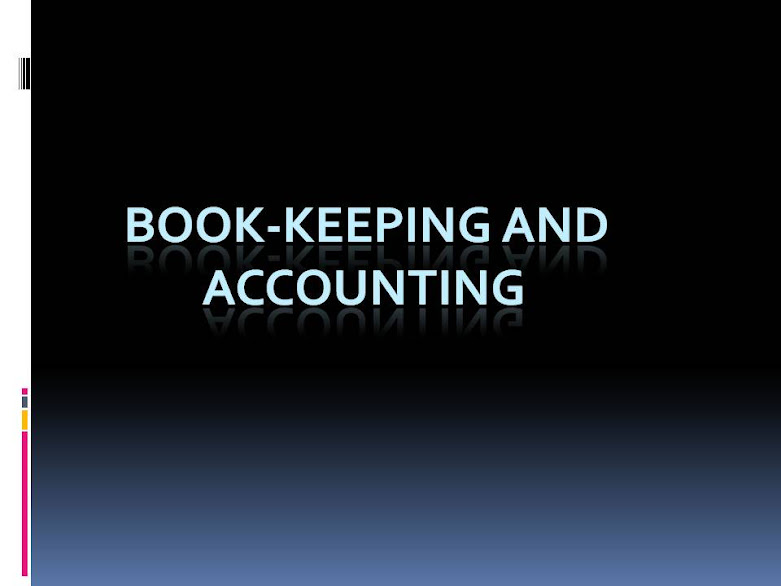Ø Book-keeping is the basis of accounting.
Ø It is the art and science of recording day-to-day business transaction in books of accounts.
Ø The process of book-keeping: identification -> Recording -> Preparing ledger -> Trial Balance.
Ø Accounting starts where book-keeping ends.
Ø Bookkeeping is the recording of financial transactions and it is a part of the process of
Ø Accounting in every organization.
Ø Book keeping is the basic activity of the accounting system.
Ø Accounting may be defined as the art of recording, classifying, summarizing and communicating the required information relating to the economic events of an organisation to the interested users of Information.
|
Basis of Difference |
Book-keeping |
Accounting |
|
Objective |
It is a process of recording of business transaction. |
It is a process of recording and reporting business transaction. |
|
Books of accounts |
Journal and Ledgers |
Journal, Ledgers, Statement of financial
position, Income statement, Statement
of changes in equity and Cash Flow
Statement |
|
Decision Making |
On the basisi of
book-keeping decisions cannot be made. |
Decision can be made. |
Basis
of Accounting
On the basis of recognition of revenue and cost there can be two of accounting:
1. Cash Basis.
2. Accrual Basis.
1. Cash
Basis: under cash basis of accounting revenue and cost is recognised only when cash is actually
received or paid not when it become due.
For example:
(a).
Goods purchased in 2020 and cash is paid on 2021. So the journal entry will be
passed in 2021 when cash will be
received.
(b) Goods purchased in march
2020 and cash is immediately paid. The transaction will be recorded on the same
day because it involves cash.
For example:
(a) Goods
purchased on march 2020 and cash is received
in 2021. The journal entry will be passed immediately on happening of
event not on receipt of cash.
Conclusion:
The cash basis of accounting
takes into account only cash transaction but accrual bassis of accounting takes
into account both cash as well as credit basis of accounting.


0 Comments
please dont enter any spam link